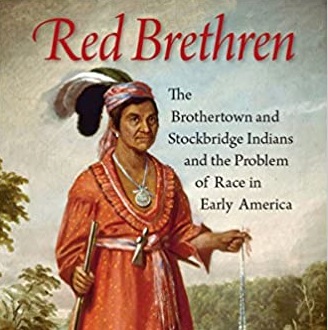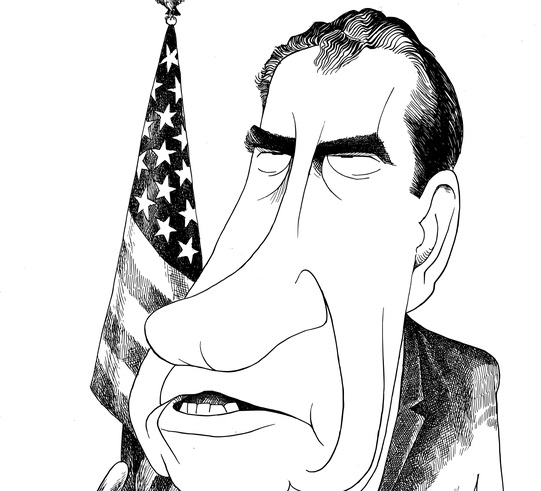
by Richard Subber | Nov 23, 2025 | American history, Book reviews, Books, Democracy, Human Nature, Politics, Power and inequality
Talk to someone “on the other side”…
Book review:
Uncivil Agreement:
How Politics Became Our Identity
by Lilliana Mason
Chicago, IL: The University of Chicago Press, 2018
183 pages
Mason offers penetrating analysis of the partisanship that is driving America deeper into political chaos. The evidence of her sincere, fact-based examination is that she conspicuously does not offer a “how to fix it” conclusion.
This is academic prose—not easy and not entertaining. It is, rather, abundant data, knowledgeably organized and carefully illuminated. Our national sociopolitical chaos is deeply rooted in human nature and it’s frightening when exposed to conscious consideration.
Uncivil Agreement tells the despairing story: too much of our political wrangling and competition has little if anything to do with “issues” and “policies” and laws. Too much of our partisan political motivation is essentially human emotions—fear, anger, and antipathy to people who are outside one’s own group.
National political figures like Trump and Sanders and others are—deliberately or inadvertently—stoking angers and fears instead of inviting citizens to vote responsibly for candidates and policies that will benefit them and also benefit the citizens of our country. Too much explosive partisanship is group-oriented (“my group” vs. “other groups”) and reinforced by social interactions and overlapping group identities that not only exclude but also demonize the “other” groups. It’s not simply racial prejudice, but that’s a big part of it.
Mason provides essential understanding of what’s going on in the fearful tumult of American politics. If you read only the final chapter (“Can We Fix It?”), you will learn much of value.
* * * * * *
Book review. Copyright © Richard Carl Subber 2025 All rights reserved.
Literary Life: A Second Memoir…book review
Larry McMurtry’s love affair with books
–
Writing Rainbows: Poems for Grown-Ups with 59 free verse and haiku poems,
and the rest of my poetry books are for sale on Amazon (paperback and Kindle)
and free in Kindle Unlimited, search Amazon for “Richard Carl Subber”
* * * * * *

by Richard Subber | Oct 23, 2025 | American history, Human Nature, Politics
good habits, bad habits…
Lincoln feared that
“democracy required habits of behavior
that people simply could not sustain.”
from:
Our Ancient Faith: Lincoln, Democracy, and the American Experiment
Allen C. Guelzo
New York: Alfred A. Knopf, 2024
247 pages
p. 142
Right now I’m not aware of a lot of good news.
* * * * * *
Copyright © Richard Carl Subber 2025 All rights reserved.
Book review: Saint Joan
by George Bernard Shaw
–
many waters: more poems with 53 free verse poems,
and the rest of my poetry books are for sale on Amazon (paperback and Kindle)
and free in Kindle Unlimited, search Amazon for “Richard Carl Subber”
* * * * * *

by Richard Subber | Oct 9, 2025 | American history, Book reviews, Books, Politics, Power and inequality
…lethargy, ineptitude, arrogance…
Book review:
War at The Wall Street Journal:
Inside the Struggle
to Control an American Business Empire
by Sarah Ellison
New York: Houghton, Mifflin, 2010.
Everything I always wanted to know about Rupert Murdoch’s (News Corp.) purchase of Dow Jones & Co. and the Wall Street Journal.
The basic story is the disgusting inability of the extended Bancroft family to actually exercise the prudent guardianship of the Journal which most of them claimed to feel as a birthright and sacred obligation. Instead, this pack of very wealthy and somewhat dissipated family heirs finally ended up just going for the gold (Rupert overpaid big time for the Journal).
It’s also fascinating and unavoidable to see the lethargy, ineptitude, and arrogance of the pampered editorial staff of the Journal. They just didn’t see The Fall coming and they were clueless about how to deal with the changing marketplace and the transformation of journalism.
They still are. Sic semper.
p.s. If you don’t know all of the myriad characters, it’s a bit difficult to keep track of the action
because Ellison names dozens of people, more or less, on every page.
* * * * * *
Book review. Copyright © Richard Carl Subber 2025 All rights reserved.
“…and dipped in folly…”
only Poe knows how to say it…
–
As with another eye: Poems of exactitude with 55 free verse and haiku poems,
and the rest of my poetry books are for sale on Amazon (paperback and Kindle)
and free in Kindle Unlimited, search Amazon for “Richard Carl Subber”
* * * * * *

by Richard Subber | Jul 17, 2025 | American history, Book reviews, Books, Democracy, History, Language, Politics, Power and inequality, Reflections
“…to make lies sound truthful…”
Book review:
What Orwell Didn’t Know:
Propaganda and the New Face of American Politics
Andras Szanto, ed.
New York: Public Affairs, 2007.
236 pages.
This collection by Andras Szanto was published before the Obama presidency and what followed.
Essays by Martin Kaplan, Victor Navasky, and Geoffrey Cowan, in particular, illuminate these insightful, topical revelations about media failure to communicate truths.
George Orwell’s well-known essay, “Politics and the English Language,” is still useful and challenging, almost 75 years after he wrote it.
An excerpt from What Orwell Didn’t Know:
“…the present political chaos is connected with the decay of language…Political language…is designed to make lies sound truthful and murder respectable, and to give an appearance of solidity to pure wind…”
It is a terrifying reality that this statement sounds like it was written yesterday.
* * * * * *
Book review. Copyright © Richard Carl Subber 2025 All rights reserved.
Book review: The Bartender’s Tale
Ivan Doig’s story, I mostly loved it…
–
Writing Rainbows: Poems for Grown-Ups with 59 free verse and haiku poems,
and the rest of my poetry books are for sale on Amazon (paperback and Kindle)
and free in Kindle Unlimited, search Amazon for “Richard Carl Subber”
* * * * * *

by Richard Subber | Jul 10, 2025 | American history, Book reviews, Books, History, Human Nature, Power and inequality
The Indians had a point of view…
Book review:
Red Brethren:
The Brothertown and Stockbridge Indians
and the Problem of Race in Early America
by David J. Silverman
Ithaca, NY: Cornell University Press, 2010
279 pages
Red Brethren is a scholarly deep dive into the experiences and mindsets of the First Americans who first tried to tolerate and later resisted the imperious impositions of the European colonists in North America.
The Indians left almost no record in their own writing, but Silverman exercises the customary technique of extrapolating Indian thoughts and attitudes from the written European record.
In the context of the widespread (not universal, still controversial) understanding that “race” is a social construct and a destructive concept, it is a bit puzzling that Silverman uses various manifestations of “race” in his analysis.
Nevertheless, he makes it plain that we have so much to learn about what the indigenous peoples thought of the European invaders, and how the thinking of our Red Brethren changed over time.
* * * * * *
Book review. Copyright © Richard Carl Subber 2025 All rights reserved.
Movie review: Same Time, Next Year
all-American adultery, oh yeah…
–
Seeing far: Selected poems with 47 free verse and haiku poems,
and the rest of my poetry books are for sale on Amazon (paperback and Kindle)
and free in Kindle Unlimited, search Amazon for “Richard Carl Subber”
* * * * * *

by Richard Subber | Jun 28, 2025 | American history, History, Human Nature, Politics, Power and inequality, Theater and play reviews
power brokers aren’t good guys…
Movie review:
All the President’s Men
It’s a good guess that you watched All the President’s Men (1976, rated PG, 138 min) a long time ago.
Now’s a good time to watch it again. You get to see Dustin Hoffman and Robert Redford at work in their younger years, and you get to see the good guys win.
Bob Woodward (Redford) and Carl Bernstein (Hoffman) give workmanlike performances as they grind through the often mind-numbing work of bringing down a corrupt president and his corrupt henchmen. I don’t think any women were involved in the really bad Watergate business.
The drama is created as the “Woodstein” duo and Deep Throat and dubious/credulous Washington Post editors relentlessly push for the boring investigative legwork that ultimately reveals the frightening cabal of power brokers who will do close to anything to keep Nixon in office.
The good guys win. Mostly they didn’t fear for their own safety. Mostly they didn’t think they were heroic. Mostly they didn’t think the job was hopeless. Mostly they wanted to do the right thing.
* * * * * *
Movie review. Copyright © Richard Carl Subber 2025 All rights reserved.
Old Friends (book review)
Tracy Kidder tells truth about old age…
–
As with another eye: Poems of exactitude with 55 free verse and haiku poems,
and the rest of my poetry books are for sale on Amazon (paperback and Kindle)
and free in Kindle Unlimited, search Amazon for “Richard Carl Subber”
* * * * * *





